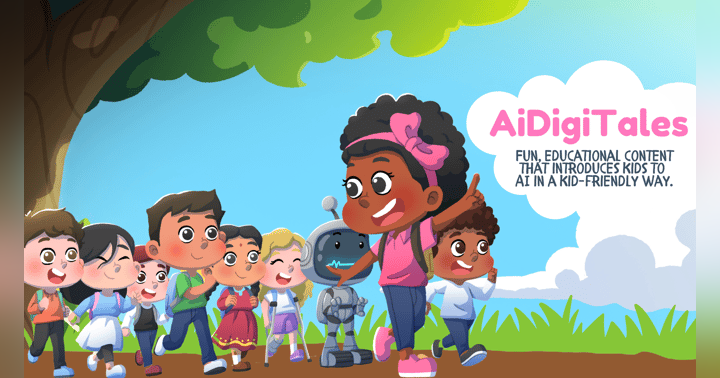AI in Education: Let's Talk About Policy, Awareness, and Challenges for Educators

Inspired by Episode 187 of My EdTech Life with special guest Logan Greenhaw
Education is a huge part of our lives, and with technology moving forward, artificial intelligence (AI) is starting to play a big role in learning. As educators, it’s important to understand what AI means for education and be aware of the challenges it brings, like privacy issues and ethical concerns. In this blog post, we’ll explore AI’s role in education, why we need policies and awareness, and the challenges we might face. My goal is to create a safe and responsible environment for AI in education and get more people talking about it.
AI’s Growing Role in Education
Our world is becoming more and more tech-focused, and AI is popping up in all sorts of industries, including education. AI can make learning more efficient and effective, especially in today’s digital age. But like any new technology, there are potential downsides and concerns that we, as education professionals, need to address.
The Importance of Talking About AI and Creating Policies for the Classroom
As AI gets more popular in education, educators and policymakers must have conversations about how it can be used in schools. We must create policies that give us guidelines for safely and effectively using AI. This helps ensure we’re using AI ethically, not just in education but in other industries.
Why We Need to Be Aware of AI
Many schools and educators still don’t know much about AI and how it affects education. To be ready for these changes, we need to research AI and what it means for education. Educators should discuss how AI impacts curriculum, assignments, and the overall learning experience. It’s also important to raise awareness among fellow educators and school administrators, so we can all prepare and educate students about AI.
Challenges of Bringing AI into Education
Integrating AI into education can be tricky. One big challenge is privacy — we need to make sure student data is protected. Another challenge is the actual integration process since not all educators are super tech-savvy, and using AI might be a big learning curve. Plus, we need to remember that AI isn’t perfect — sometimes, it might make unethical decisions, especially on sensitive topics like politics or religion.
AI in Schools: Real Teachers' Reactions & Conversations on Emerging Tech in Education
Conclusion
AI is changing a lot of things in our lives, including education. Using AI has the potential to really change the way we teach and learn, but we also need to be aware of the possible issues related to ethics and privacy. As education professionals, we should create guidelines and policies to ensure we use AI safely and responsibly in education. Having open discussions about AI’s pros and cons will help us keep a balanced view of what it means for education. As AI becomes a bigger part of our lives, it’s essential to stay aware of its potential impact, especially in education.









